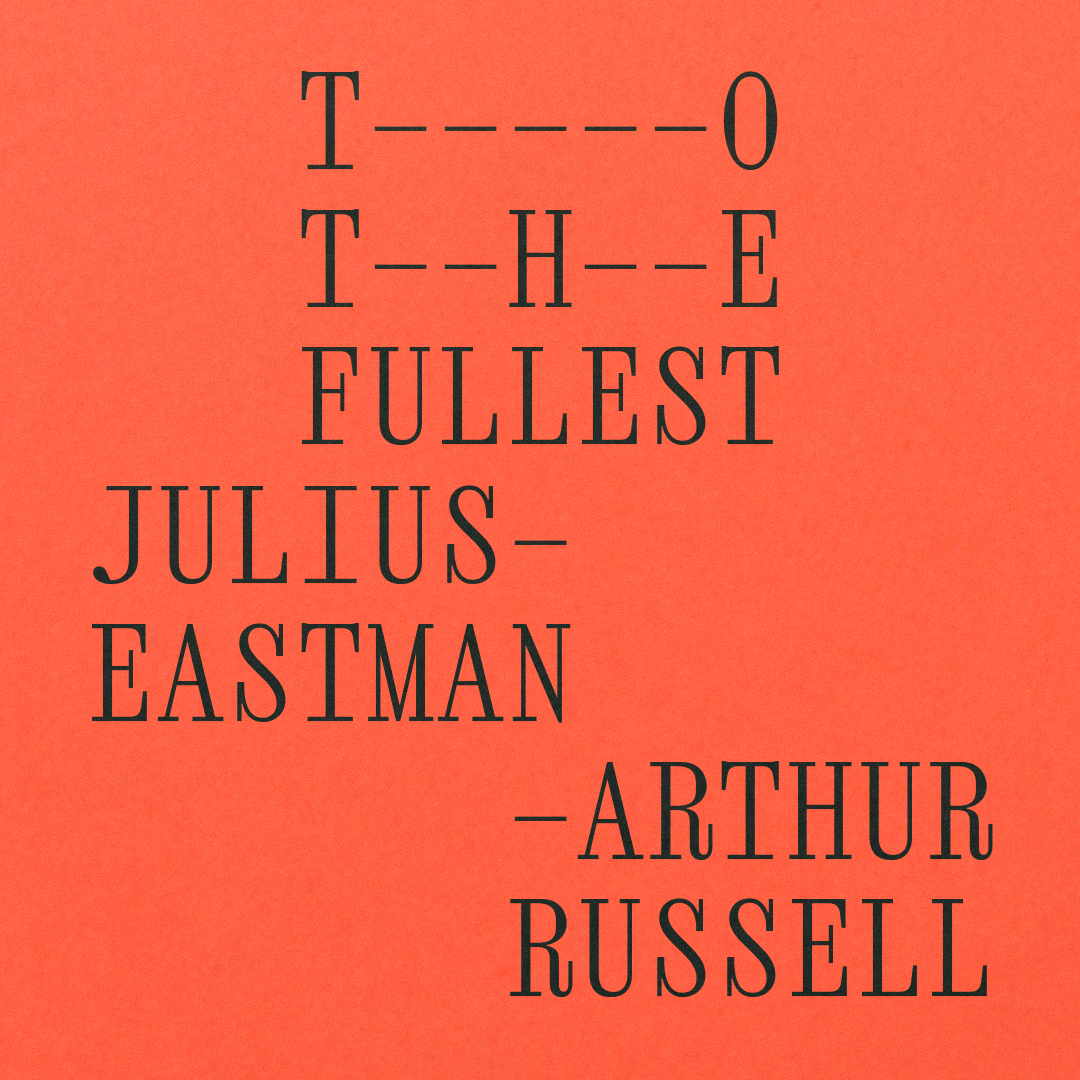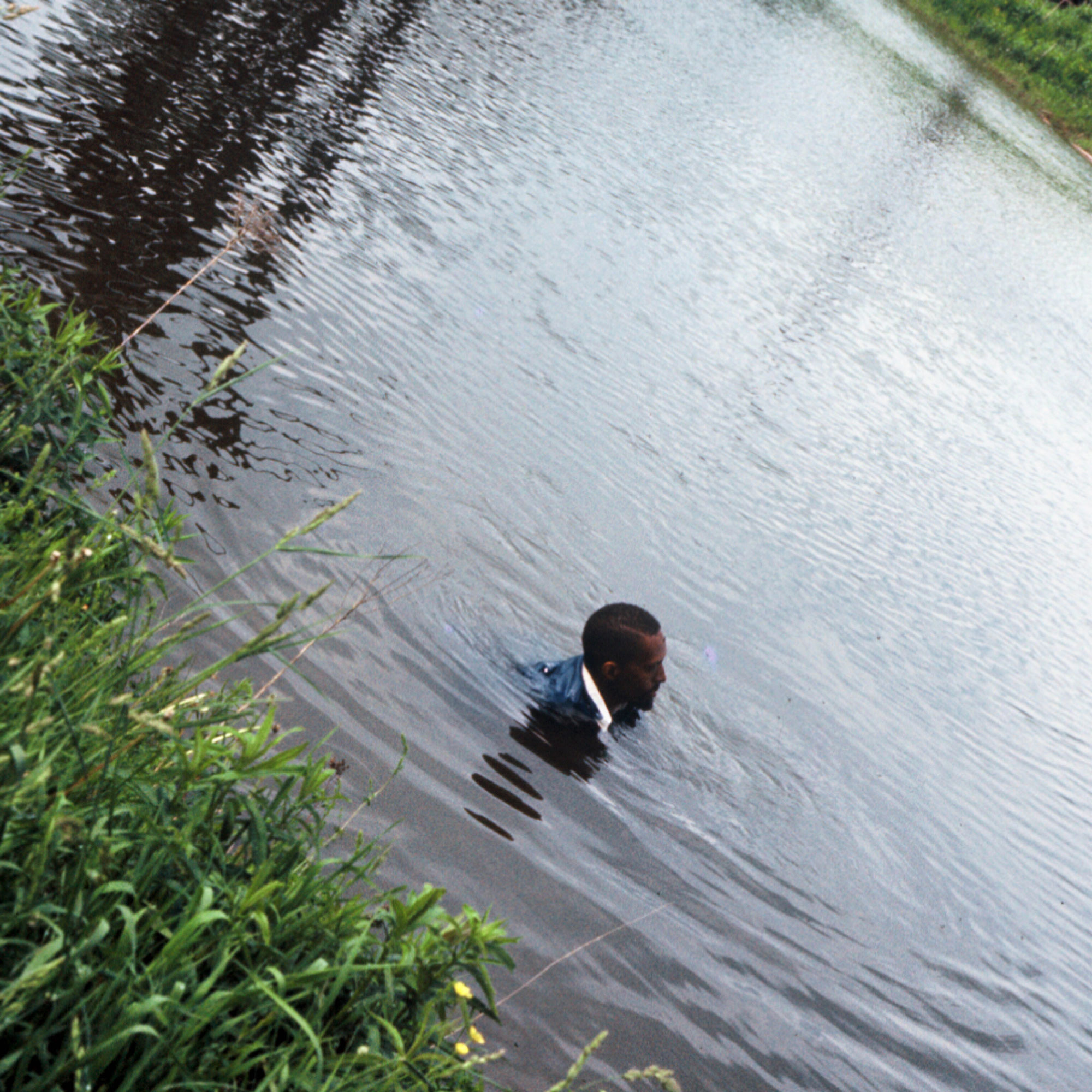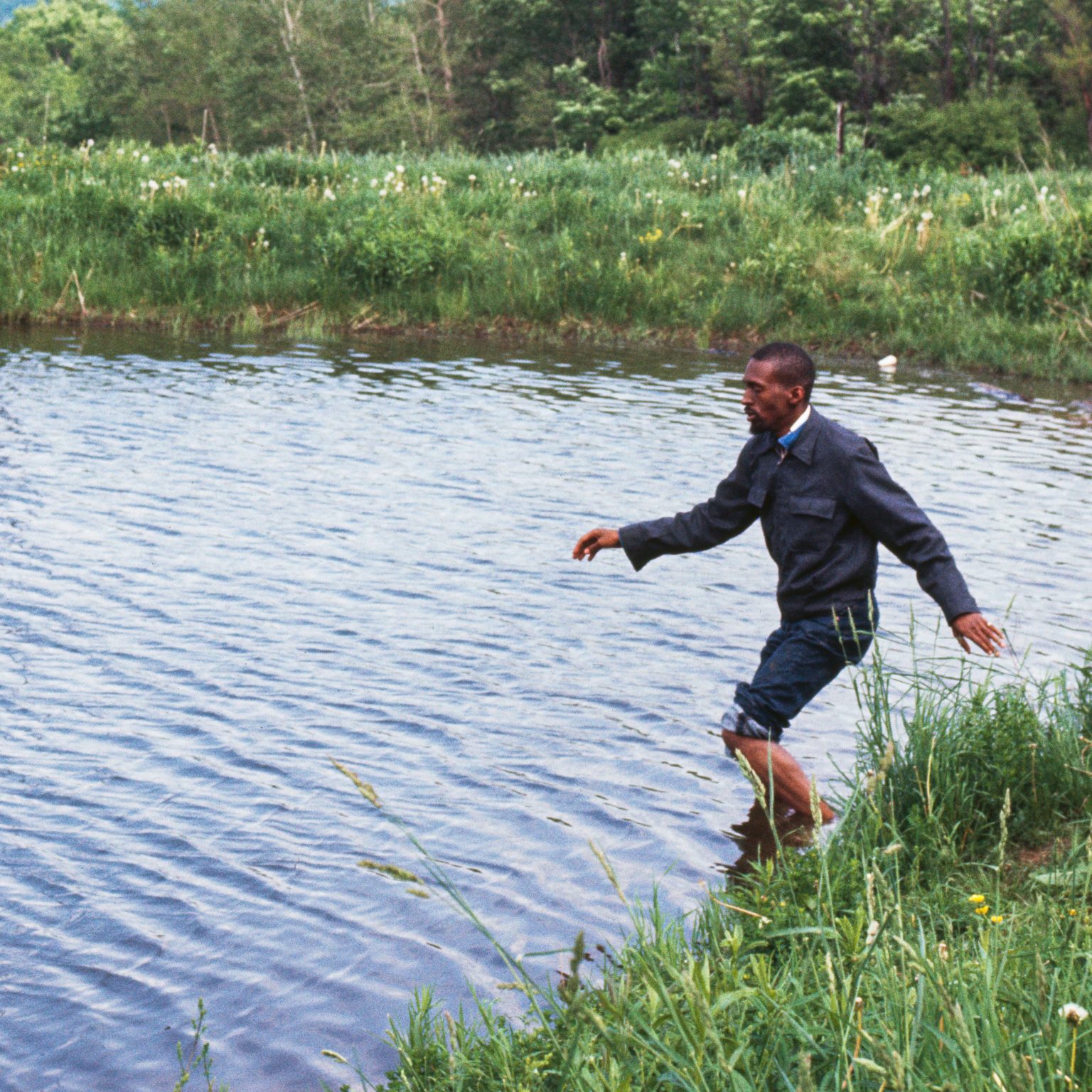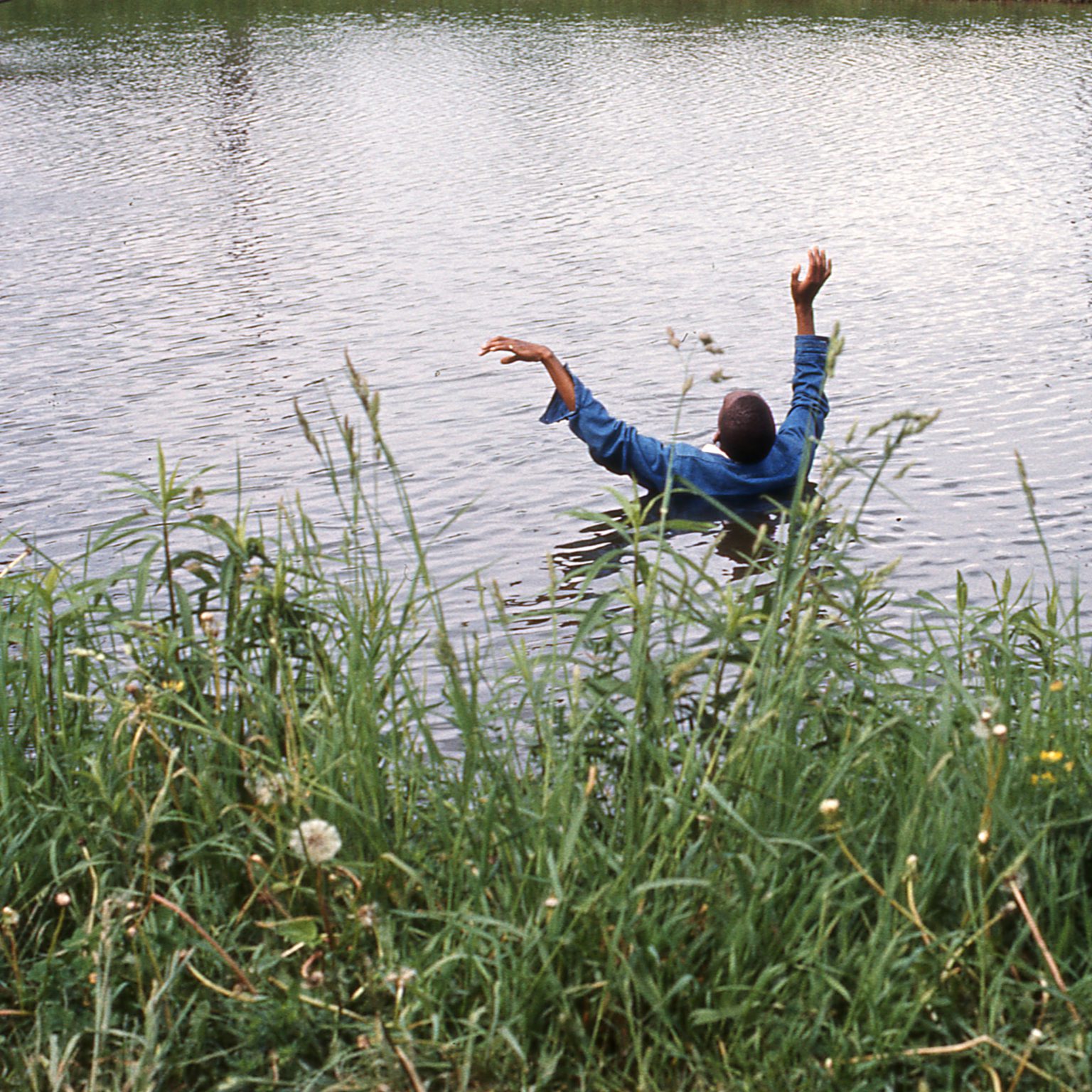Julius Eastman Anthology
To The Fullest
Wild Up, Insight, and REDCAT team up for a closer look at the legacies of maverick artists Julius Eastman and Arthur Russell with an exhibit and special performances running from March through April 2025.
Wild Up’s Julius Eastman Anthology is a portrait and response to one of our favorite composers. It is an ongoing GRAMMY® nominated multi-volume recording project and a series of performances, dialogues, and public programs, launched in 2021. We’re delving deep into Eastman’s oeuvre as we explore his inimitable compositions and idiosyncratic ways of communicating musical ideas.
Something about the identity and presence of Eastman’s music engages us and makes us obsessed. It’s music that lives in the minds of audiences unlike anything else Wild Up has performed. With this Anthology, we are discovering how to carry his music and ideas forward.
Recordings
Eastman sometimes gifted copies of his musical scores. Now, over three decades since his death, his work is being regifted by those whose lives he touched. For us, to play Eastman’s music is to feel we are in, of, and visiting his world simultaneously. Though the band worked with scrupulous care to realize this project, part of the joy of performing it is accepting that Julius Eastman’s precise intentions for these elusive scores will always remain a mystery — just a little out of reach. Still, in the frenzied ecstasy of performing his work, we feel a little more alive, a little more connected, and a little more free. And by embarking on this anthology, we endeavor to carry this freedom forward.
The recorded performances reflect a blend of strict adherence to Eastman’s specific instructions with an embrace of individual and collective decision-making within the ensemble, a continuous three-way conversation between Eastman, our individual performers, and the group as a whole.
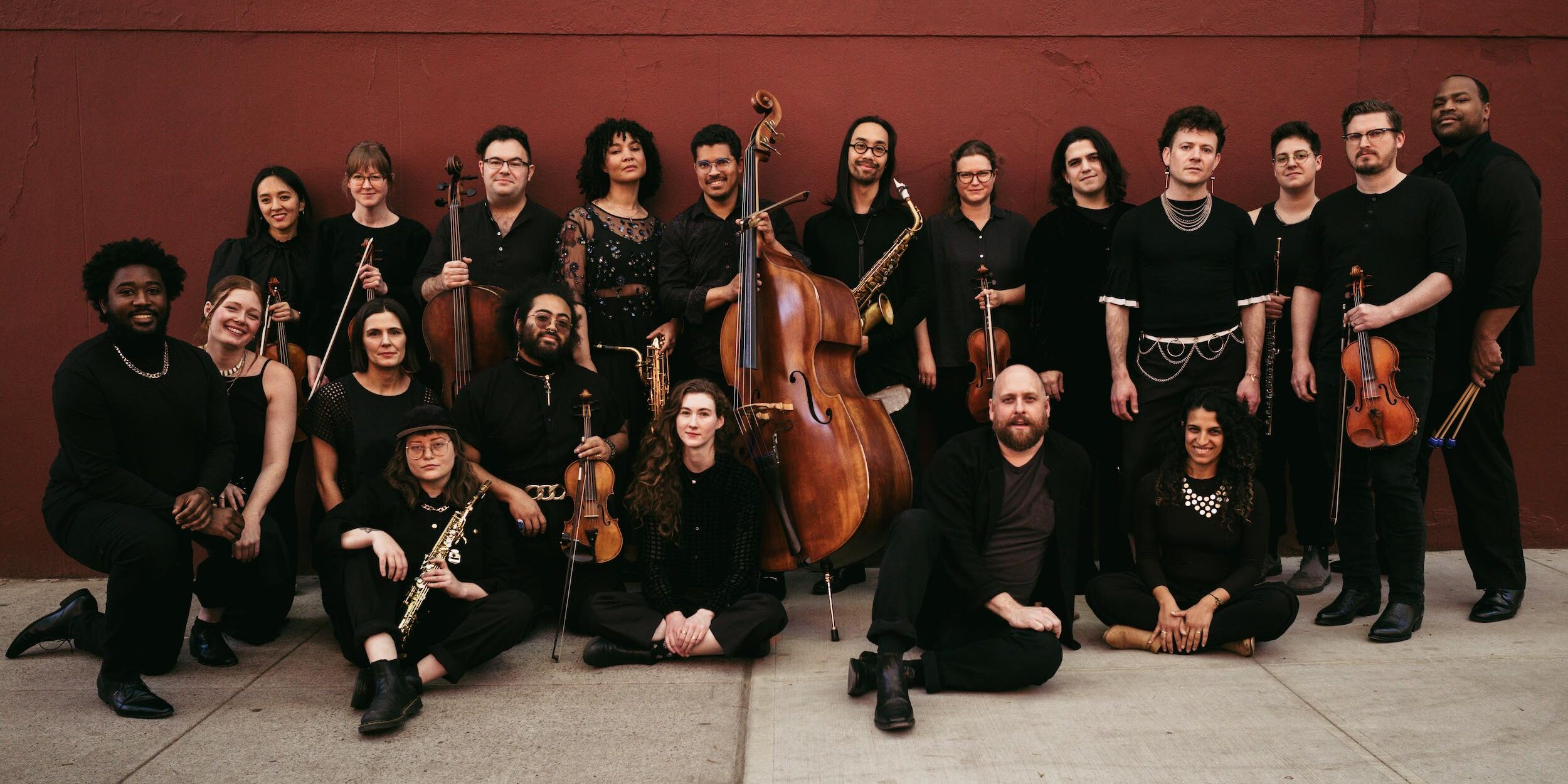
Julius Eastman Vol. 4: The Holy Presence
Julius Eastman — a young, gay, and Black composer who confronted the prejudices of the classical music world as he swerved through academia, discos, Europe, Carnegie Hall, and the downtown experimental music scene — shines like a beacon to today’s musical creators. Any term used to characterize today’s musical landscape — ”genre-fluid,” or the like — was anticipated by Eastman decades before; yet he was punished for being ahead of his time, both in the treatment of his music and, tragically, his person — following his 1990 passing at age 49, it took some eight months for a newspaper, any newspaper, to run his obituary.
Throughout their multi-volume Eastman compendium released with New Amsterdam Records, Wild Up have sought to pay tribute with expansive interpretations of his idiosyncratic scores that tap into Eastman’s revolutionary spirit. 2021’s Julius Eastman Vol. 1: Femenine was hailed as “a masterpiece” (The New York Times); 2022’s Julius Eastman Vol. 2: Joy Boy was called “glorious” by NPR; and 2023’s Julius Eastman Vol. 3: If You’re So Smart, Why Aren’t You Rich? was called “a deliriously great tribute” (The Guardian). The latter two garnered GRAMMY nominations, for Best Orchestral Performance (for “Stay On It”) and Best Classical Compendium, respectively.
With the forthcoming Julius Eastman Vol. 4: The Holy Presence (June 21, 2024 / New Amsterdam Records), Wild Up digs ever deeper into Eastman’s oeuvre, performing lesser-known works that represent a mystically charged and spiritually reflective vein of his dynamic catalog.
Keyboardist richard valitutto is an expressive blur on the tumultuous “Piano 2,” while the acclaimed vocalist Davóne Tines lends an authoritative ominousness to “Our Father” and the acapella “Prelude To The Holy Presence Of Joan d’Arc.”
Meanwhile, “The Holy Presence Of Joan d’Arc,” Eastman’s tribute to the medieval heroine who somewhat paradoxically has become both the personification of fiery religious conviction and a retrospective queer icon, finds Seth Parker Woods stacking ten multi-tracked cello parts with furious precision and tenacity.
As a whole, The Holy Presence serves not only as evidence of the immense individual talent that populates the ever-expanding tentacles of the Wild Up collective but as proof that the broader musical community has only just begun to scratch the surface of Julius Eastman’s endlessly rewarding, indelibly audacious body of work.
Davóne Tines
richard valitutto
Seth Parker Woods
Wild Up
Andrew McIntosh, viola
Mona Tian, viola
Linnea Powell, viola
Diana Wade, cello
Derek Stein, cello
Hillary Smith, cello
Christopher Ahn, cello
Niall Taro Ferguson, cello
Seth Parker Woods, cello
Stephen Pfeifer, bass
Marlon Martinez, bass
Davóne Tines, voice
richard valitutto, piano
Seth Parker Woods, cello
Christopher Rountree, conductor / artistic director
Produced, recorded and mixed by Lewis Pesacov with additional production by Christopher Rountree
Engineered by Lewis Pesacov and Clint Welander
Additional mixing on Prelude to the Holy Presence of Joan d'Arc by Clint Welander
Recorded at East West Studios, Infinitespin Studio, and Sunset Sound
Mixed at Ahata Sound
Mastered by Reuben Cohen at Lurssen Mastering, Los Angeles, CA
Album Designer: Andrea Hyde
Website Designer: Traci Larson
Cover Photo: Christine Rusiniak
Session Photos: Glen Hahn and Sam Lee
Live Photo: Joe Sinnott
Liner Notes: Harmony Holiday
Executive Producer: Elizabeth Cline
Production Associate: Glenna Adkins
Performances
Upcoming
- 03.29.2025 To The Fullest: Julius Eastman: The Holy Presence
- 03.15.2025 - 05.04.2025 To The Fullest Exhibition: World of Echo: Julius Eastman and Arthur Russell
- 03.04.2025 To the Fullest: The Music of Julius Eastman and Arthur Russell
Past
- 09.22.2019 A Portrait: Julius Eastman
- 06.17.2021 Wild Up plays Julius Eastman’s Femenine
- 06.19.2022 Julius Eastman’s Buddha (LP Release Show)
- 07.23.2022 Femenine: Julius Eastman + Wild Up
- 04.16.2023 Julius Eastman: Femenine
- 04.21.2023 The Music of Julius Eastman: Femenine
- 04.22.2023 The Music of Julius Eastman: Chamber Music
- 04.22.2023 The Music of Julius Eastman: Buddha
-
06.16.2023
Julius Eastman Vol. 3 Release Party
Los Angeles, CA More Info
-
06.26.2023
NPR Tiny Desk Concert : Wild Up plays Eastman's Stay On It
Washington, DC More Info
- 02.09.2024 Wild Up plays Julius Eastman at Stanford Live
- 02.10.2024 Wild Up plays Julius Eastman at Stanford Live
- 03.08.2024 Wild Up plays Julius Eastman at Sonoma State
- 03.09.2024 Wild Up plays Julius Eastman at Cal Performances
- 03.23.2024 Wild Up plays Julius Eastman at Tutti Festival
- 03.24.2024 Wild Up plays Julius Eastman
-
03.27.2024
Wild Up plays Julius Eastman at TO Live
Toronto, Canada
- 06.21.2024 Julius Eastman / Seth Parker Woods
- 08.29.2024 Erased Music: Julius Eastman – Buddha
- 08.30.2024 Erased Music: Julius Eastman
- 08.31.2024 Erased Music: Julius Eastman
-
10.05.2024
Wild Up Plays Julius Eastman: Femenine
Krannert Center University of Illinois, Urbana, Illinois
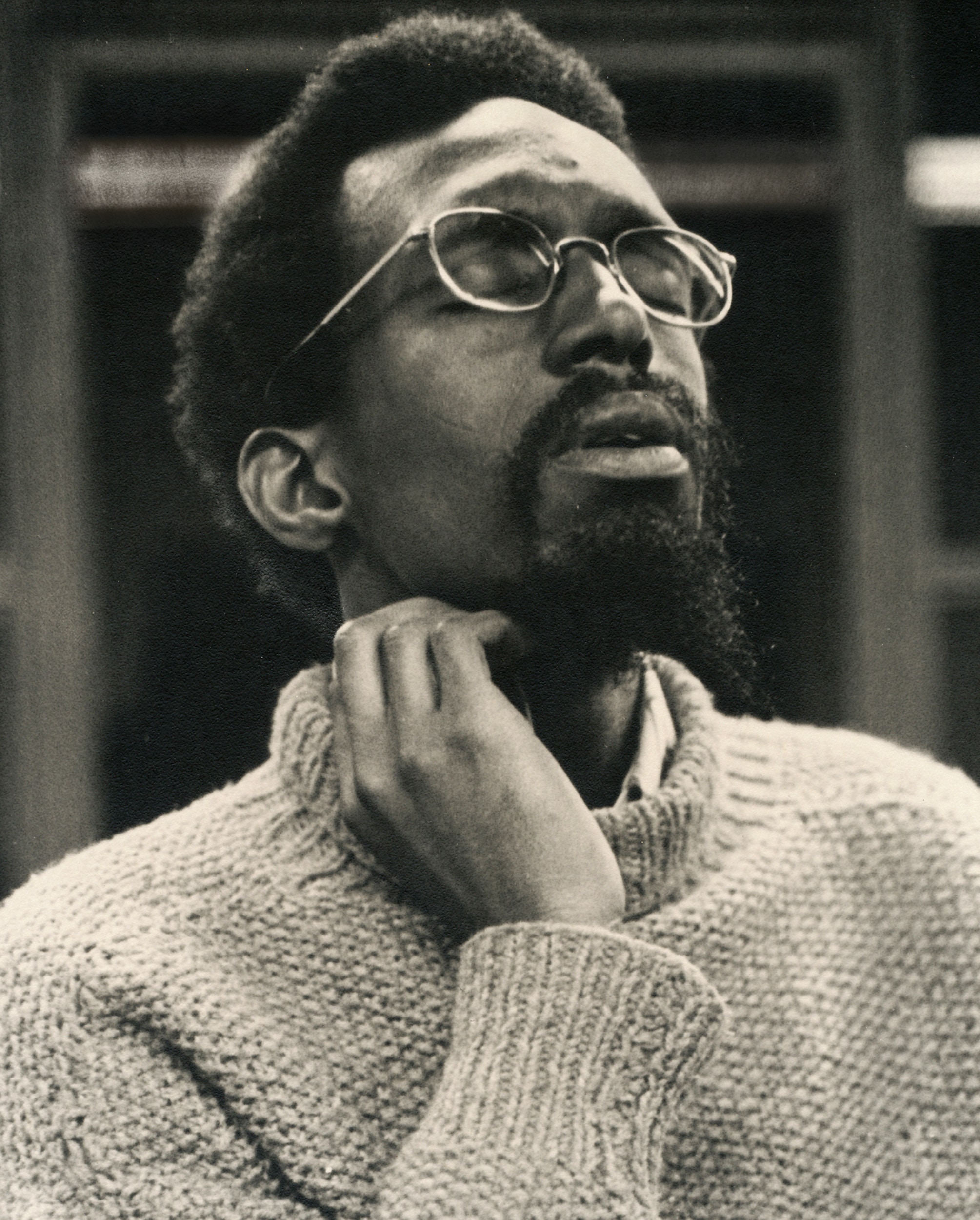
About Julius Eastman
Julius Eastman (1940-1990) was a composer, conductor, singer, pianist, and choreographer. A singular figure in New York City's downtown scene of the 1970s and 80s, he also performed at Lincoln Center with Pierre Boulez and the New York Philharmonic and recorded music by Arthur Russell, Morton Feldman, Peter Maxwell Davies, and Meredith Monk. “What I am trying to achieve is to be what I am to the fullest," he said in 1976. "Black to the fullest, a musician to the fullest, a homosexual to the fullest.”
Eastman was young, gay, and Black at a time when it was even more difficult to be young, gay, and Black. He swerved through academia, discos, Europe, Carnegie Hall, and the downtown experimental music scene. And in 1990, at age 49, Eastman died in Buffalo, New York, less than a decade after the New York City Sheriff’s Department threw most of his scores, belongings, and ephemera into the East Village snow.
Eastman's music shines like a retroactive beacon to today’s musical creators. Any term used to characterize today’s musical landscape — “genre-fluid” or the like — was anticipated by Eastman decades before. Yet, he was punished for being ahead of his time, both in the treatment of his music and, tragically, his person. Eastman’s music flowed freely from — and through — his myriad influences and was terribly served by the musical infrastructure of his day. In our unique approaches to Eastman’s work, we’re pushing ourselves to work in dialogue with the composer’s creative impulses, channeling his individualistic spirit, augmenting the pieces with our ideas and concepts, and trying to stay true.
About Wild Up
Called “a raucous, grungy, irresistibly exuberant … fun-loving, exceptionally virtuosic family” by Zachary Woolfe of the New York Times, Wild Up has been lauded as one of classical music’s most exciting groups by virtually every significant institution and critic within earshot.
The GRAMMY® nominated ensemble was started by Artistic Director Christopher Rountree, his vision of a group of young musicians that rejected outdated traditions and threw classical repertoire into the context of pop culture, new music, and performance art. In 2020, the group celebrated 10 years of bringing people together around the belief that no music is off limits, that classical music concerts can defy convention and address the need for heart-wrenching, mind-bending experiences.
Over the past decade the group: accompanied Björk at Goldenvoice’s FYF Fest; premiered David Lang and Mark Dion’s “anatomy theater” at LA Opera; played the scores to “Under the Skin” by Mica Levi and “Punch Drunk Love” by Jon Brion live with the films at L.A.’s Regent Theater and Ace Hotel; premiered hundreds of new works including: a new opera by Julia Holter at Brooklyn’s National Sawdust, new pieces from avant-pop icon Scott Walker and celestial loop-maker Juliana Barwick at Walt Disney Concert Hall, and the West Coast premiere of Ragnar Kjartansson’s “Bliss” a 12-hour epic at REDCAT during the LA Phil Fluxus festival. They played a noise concert as fanfare for the groundbreaking of Frank Gehry’s new building on Grand Avenue and First Street in downtown L.A.; toured the country with their original projects “Future Folk,” and ”We the People;” championed the music of Julius Eastman; and founded the solstice series “darkness sounding.” They held residencies at the Los Angeles Philharmonic, the Colburn School, Los Angeles Chamber Orchestra, National Sawdust, and the Hammer Museum, and taught at dozens of educational institutions across the U.S.
